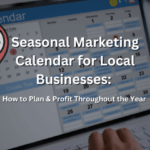Part Two
The last of our 42 SEO Myths, taken directly from the master of SEO and Google employee Matt Cutts:
23) Does translated content cause a duplicate content issue?
No, but using Google Translate to auto-generate this can be spammy. Get a human to do a real translation
24) What does Google mean by trust?
It’s an umbrella term for Page Rank, site history, respectability, content quality etc.
25) Should I spend time fighting scrapers or improving content?
Improving content
26) Will I be penalized for hidden content if I have text in a “read more” dropdown?
Ok if it’s a normal implementation
27) How important is it to have keywords in a domain name?
You don’t need keywords in the domain name
28) What’s the difference between dashes and underscores?
Underscores link words together. Dashes show separate words
29) Does Google still recommend 100 links or fewer per page?
Not a guideline anymore. Do what is right for the page and users
30) Does indexing a mobile website create a duplicate content issues?
No
31) Does Google use data from social sites in ranking?
Yes
32) What are some effective techniques for building links?
Controversy, participating in the community, original research, newsletters, social media, lists, blogs, “how to’s and tutorials, run a useful service, make a few videos
33) Is the order of links on a page important for SEO?
Don’t worry about it. There’s no special benefit to it being the first link
34) Should I use pipes or dashes in my titles?
Either
35) Can the geographic location of a web server affect SEO?
Yes, it can affect what countries you rank in
36) Will a “coming soon” page negatively impact my site?
No, it shouldn’t
37) Can I publish 100+ pages at once?
Yes
38) How can new pages get indexed quickly?
Get more and better links
39) Do site load times have an impact on Google rankings?
No
40) Does the ordering of heading tags matter?
Not really
41) Should I use underscores or hyphens in URLs?
Hyphens
42) More than one H1 on a page: good or bad?
Don’t overdo it, but it’s acceptable






